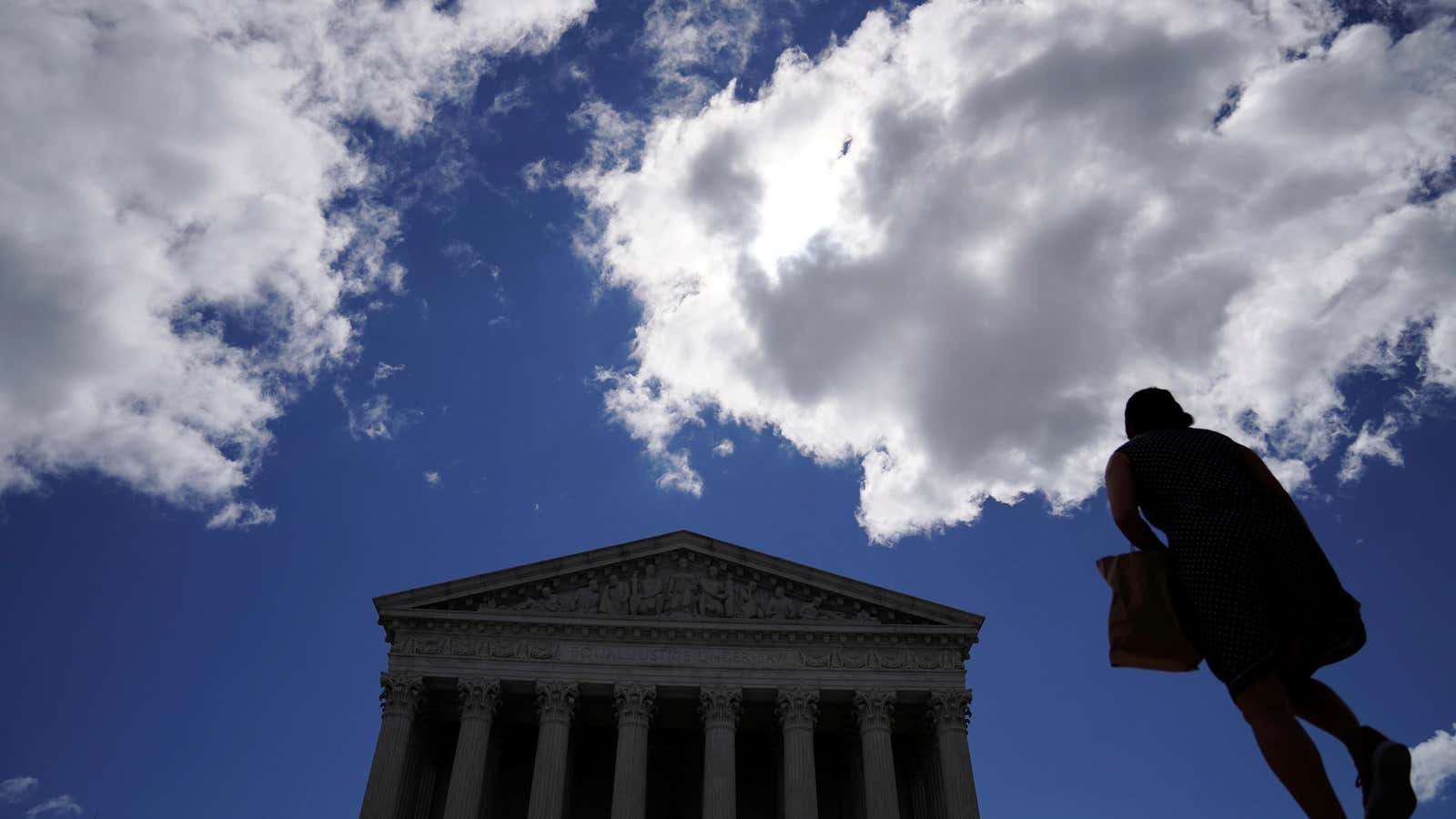The US Supreme Court reversed the quadruple murder conviction of Curtis Flowers today. Few individuals are as familiar with the legal process as Flowers has become since he was first arrested in 1996 for a crime in a Mississippi furniture store and tried six separate times for it. The case became famous nationally after the popular In the Dark podcast aired its investigation into the case, including racial discrimination in jury selection.
Flowers may face another trial now that his last trial, in 2010, was deemed illegitimate today by the high court. in Flowers v. Mississippi (pdf), the majority concluded, 7-2, that racism infected the prosecution’s jury selection process.
“The Constitution forbids striking even a single prospective juror for a discriminatory purpose,” Brett Kavanaugh wrote in the decision. “In the eyes of the Constitution, one racially discriminatory peremptory strike is one too many.” He was joined by six other justices, while Clarence Thomas dissented and was joined in part by Neil Gorsuch.
Flowers is black. Three of the four murder victims were white. And the same prosecutor has continually tried Flowers for this crime, successfully, continually excluding 41 of 42 black jurors from sitting on the trial. Courts have repeatedly sentenced Flowers to death. But on appeal, Flowers has shown prosecutorial misconduct over and over and has succeeded in having the convictions reversed.
The latest decision stems from a 2010 trial that also ended in a conviction. Ultimately, the Mississippi Supreme Court affirmed this conviction in a narrow 5-4 decision. Dissenting Mississippi justices argued that their colleagues were ignoring Supreme Court precedent when it comes to racially neutral jury selection. The US Supreme Court majority agreed.
Kavanaugh provided four reasons for the Court’s conclusion that Flowers’ latest trial didn’t pass constitutional muster. Evidence from all six trials showed discriminatory intent by the prosecution in jury selection. In the sixth trial, the prosecutor struck five of six black prospective jurors and asked them”dramatically disparate” questions from white prospective jurors. Finally, the reasons the prosecutor gave for striking one black juror in 2010—supposedly because she knew Flowers’ family—while allowing another white juror who also knew the Flowerses to serve on the jury at the sixth trial, didn’t convince the court that the prosecution wasn’t being discriminatory in its jury selection.
The case “breaks no new legal ground,” Kavanaugh pointed out. He emphasized the fact that the court was simply applying the standards set out in prior precedent, namely the 1986 case Batson v. Kentucky. In Batson, the high court ruled that a prosecutor cannot use peremptory challenges in jury selection in a criminal case to exclude jurors based on race. Peremptory challenges allow trial attorneys to dismiss a juror without stating a valid reason, but they can’t be used as a pretext for discrimination.
Kavanaugh today called the Mississippi high court’s holding that there was no discrimination in the peremptory strike of a black juror in Flowers’ sixth trial “clear error.” He writes:
A review of the history of the State’s peremptory strikes in Flowers’ first four trials strongly supports the conclusion that the State’s use of peremptory strikes in Flowers’ sixth trial was motivated in substantial part by discriminatory intent. The State tried to strike all 36 black prospective jurors over the course of the first four trials. And the state courts themselves concluded that the State had violated Batson on two separate occasions. The State’s relentless, determined effort to rid the jury of black individuals strongly suggests that the State wanted to try Flowers before a jury with as few black jurors as possible, and ideally before an all-white jury.
The case was remanded back to the Mississippi courts, and Flowers may well face yet another trial. If the state hopes for a conviction that sticks, it would do well to hand the matter over to a new prosecutor, and one without a record of discriminatory jury selection.
